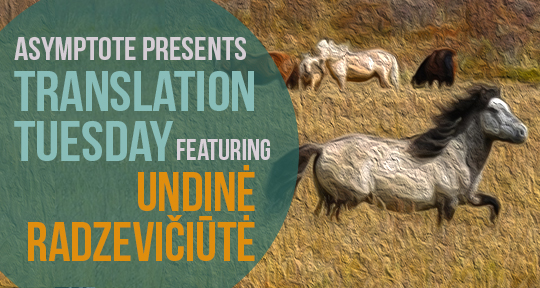On the occasion of the 2018 London Book Fair (April 10-12), in which the Baltic countries are this year’s Market Focus, this week’s Translation Tuesday brings us an unusual literary pleasure from Lithuania.
Undinė Radzevičiūtė’s Fishes and Dragons entwines two separate stories. The first strand comprises an eighteenth-century encounter between East and West, in which the Jesuit father Castiglione attempts to impart Western art standards to a skeptical Chinese imperial court. The second part has a contemporary setting and involves the banter between three generations of women living in one apartment: Mama Nora, a writer of erotic novels, the old-fashioned Grandmother Amigorena, and two grandchildren. An altogether unpredictable masterpiece, Fishes and Dragons is a literary feast that we can’t wait to read in its entirety!
This showcase is made possible by the Lithuanian Culture Institute.


